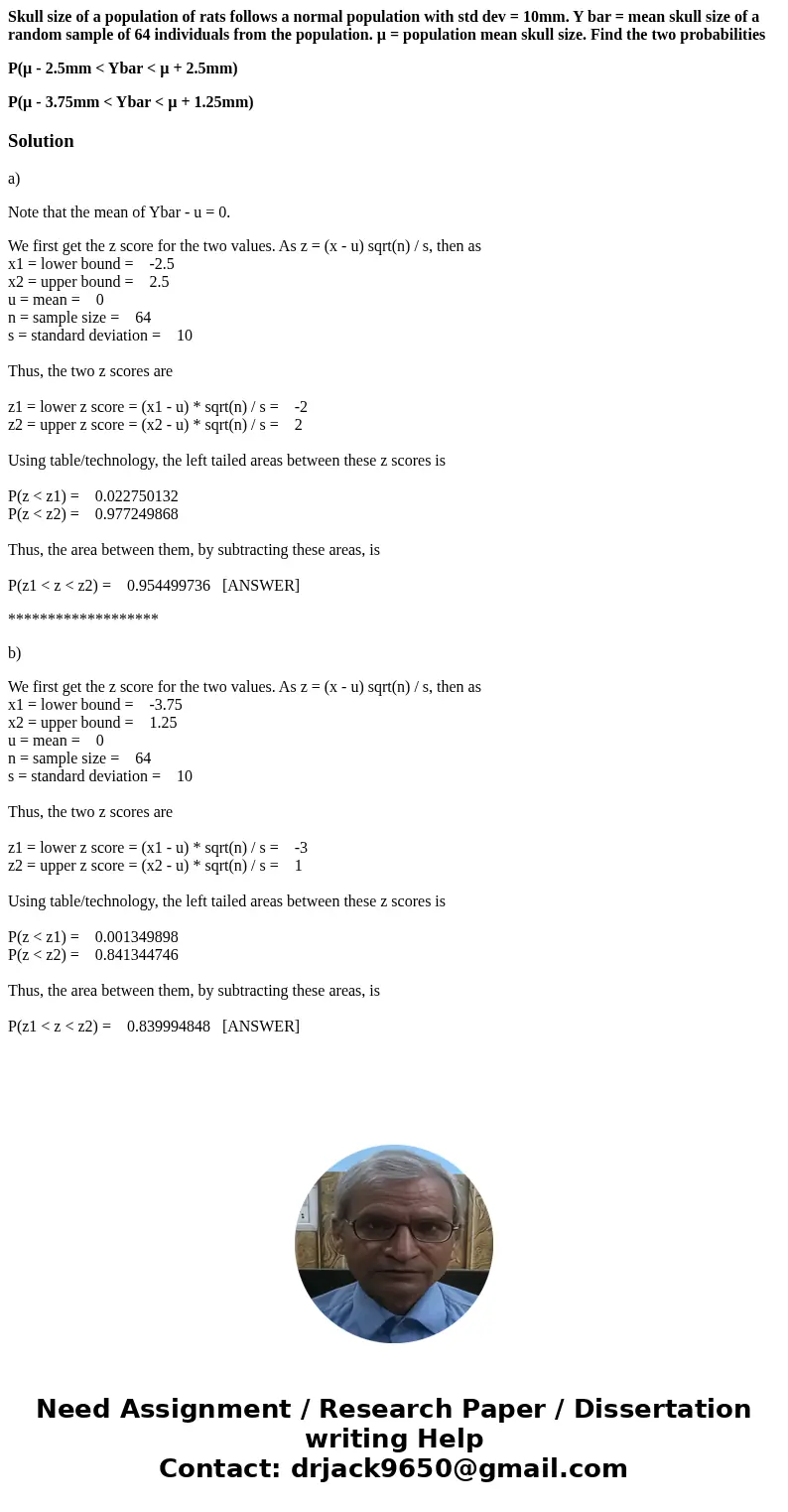Skull size of a population of rats follows a normal populati
Skull size of a population of rats follows a normal population with std dev = 10mm. Y bar = mean skull size of a random sample of 64 individuals from the population. µ = population mean skull size. Find the two probabilities
P(µ - 2.5mm < Ybar < µ + 2.5mm)
P(µ - 3.75mm < Ybar < µ + 1.25mm)
Solution
a)
Note that the mean of Ybar - u = 0.
We first get the z score for the two values. As z = (x - u) sqrt(n) / s, then as
x1 = lower bound = -2.5
x2 = upper bound = 2.5
u = mean = 0
n = sample size = 64
s = standard deviation = 10
Thus, the two z scores are
z1 = lower z score = (x1 - u) * sqrt(n) / s = -2
z2 = upper z score = (x2 - u) * sqrt(n) / s = 2
Using table/technology, the left tailed areas between these z scores is
P(z < z1) = 0.022750132
P(z < z2) = 0.977249868
Thus, the area between them, by subtracting these areas, is
P(z1 < z < z2) = 0.954499736 [ANSWER]
*******************
b)
We first get the z score for the two values. As z = (x - u) sqrt(n) / s, then as
x1 = lower bound = -3.75
x2 = upper bound = 1.25
u = mean = 0
n = sample size = 64
s = standard deviation = 10
Thus, the two z scores are
z1 = lower z score = (x1 - u) * sqrt(n) / s = -3
z2 = upper z score = (x2 - u) * sqrt(n) / s = 1
Using table/technology, the left tailed areas between these z scores is
P(z < z1) = 0.001349898
P(z < z2) = 0.841344746
Thus, the area between them, by subtracting these areas, is
P(z1 < z < z2) = 0.839994848 [ANSWER]

 Homework Sourse
Homework Sourse